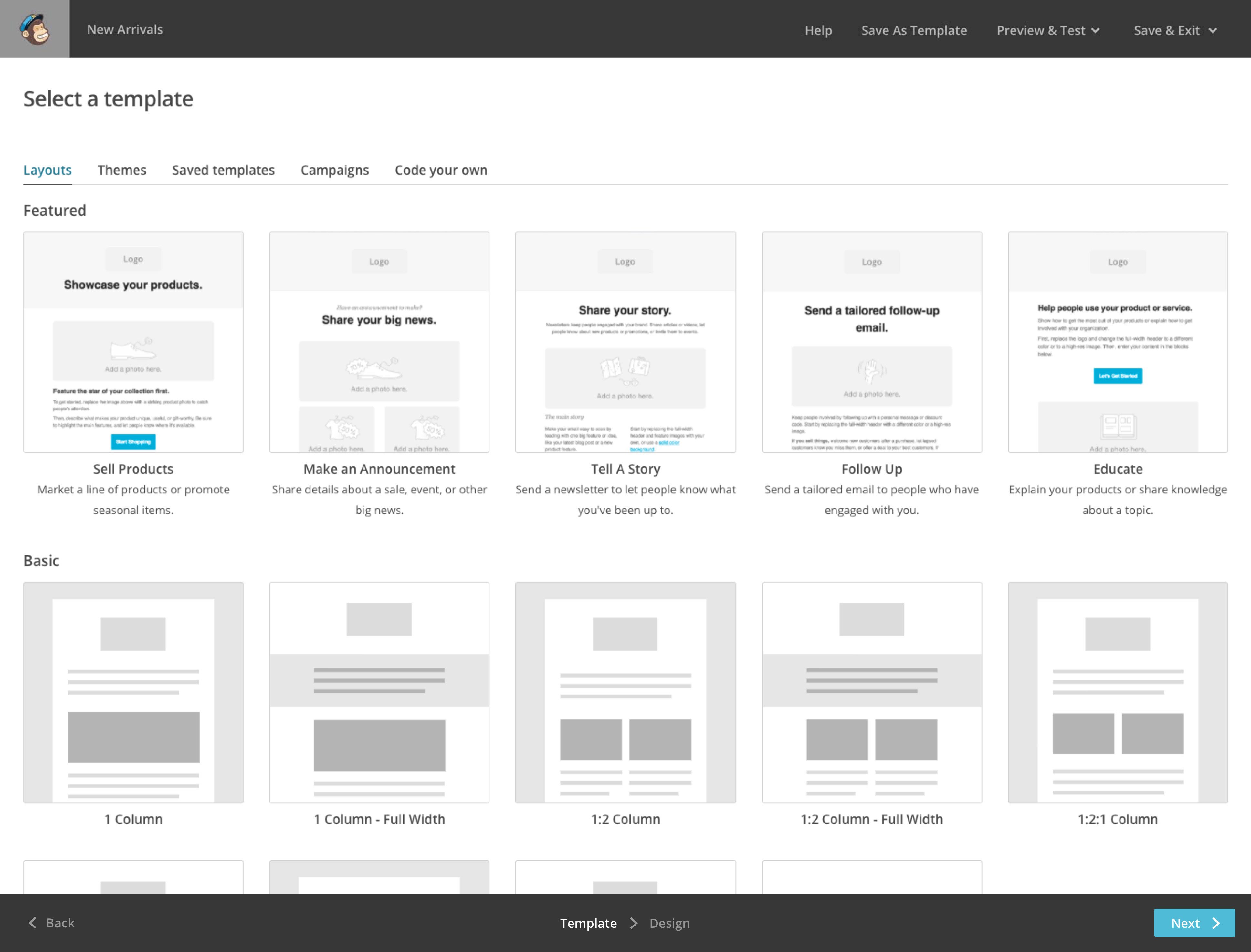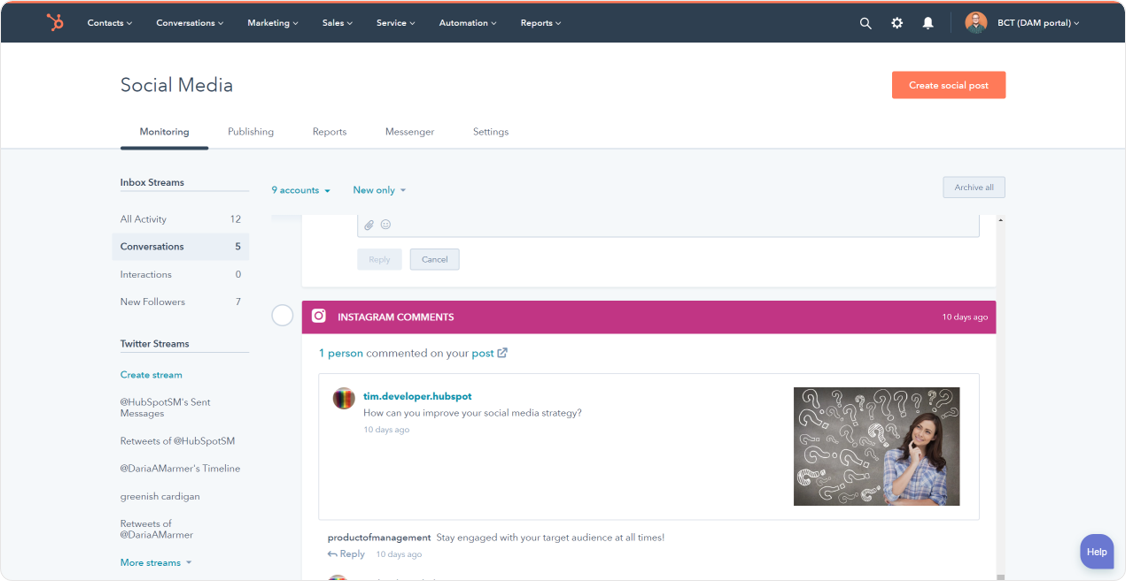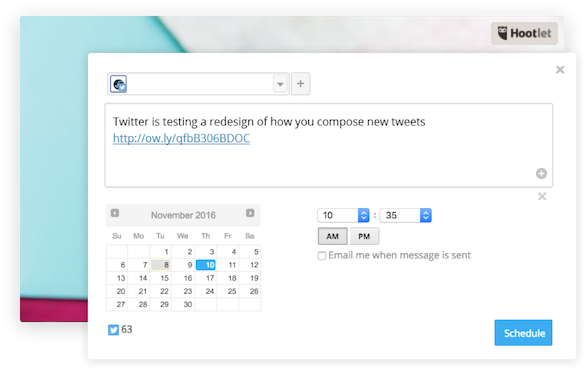How can marketing your small business maximize your reach? With the right strategies and tools, marketing can become a powerful ally in generating new leads, nurturing those leads and converting them into customers.
However, many small businesses tend to overlook or overcomplicate marketing and social media, which can be detrimental to the business’ growth. In this blog, we’ll look at some of the strategies for marketing your small business, including the tools you can use, and social media tips and tricks to help boost your marketing efforts.
Building Brand Recognition – Why Is It Important?
Before we can start talking about a strategy for marketing your small business, we need to talk about why you’re doing so in the first place. What does brand recognition accomplish, exactly? Many organizations don’t understand the importance of building brand recognition, so they don’t spend time building this out. In this blog post about why branding is so important for your business, the authors lay out several reasons why branding is the secret weapon for most companies. We’ve summarized them below:
- By branding your products and your organization, it helps people identify you.
- Through your brand, you can form an emotional connection with your customers.
- If your customers know and are happy with your brand, it makes it easier for them to choose your brand over others because of the loyalty they have to you.
- A good brand equals a good reputation. Companies with a good reputation attract top quality talent and gain the trust of their stakeholders.
- If you have a valuable brand, you’ll be able to develop a profitable business.
Strategies for Marketing Your Small Business
Raising brand awareness is an important component of marketing your small business – you want to raise brand awareness among as many qualified leads as possible and ensure healthy customer growth. Here are a few key strategies to consider to raise awareness for your small business’s brand:
Content Marketing
Providing relevant content to your customer base is a long-term strategy to ensure sustainable growth of visitors and customers. Content marketing refers to the creation and distribution of relevant, valuable and consistent content pertaining to your business and products via multiple channels. The distribution channels can be your business website, blogs, videos, social media, podcasts, online courses etc. Some quick tips on content:
- Make sure you’re focusing on quality, not quantity.
- Produce content that aligns with your brand’s products and/or services.
- Consider Search Engine Optimization (SEO) so your potential customers can find you easier.
- Create and share content consistently (set up a content calendar or schedule).
Email Marketing
Email communication has become a heavy hitter in digital marketing. Easy to set up and use, email marketing is a low-cost marketing strategy that has a wide reach and plenty of long-term benefits. Once you have a visitor/lead’s email address (gathered from an online source such as your business website or in person via a customer survey, etc.) it provides a new channel to reach out to your potential customers, as well as remote workers via their mobile device.
The type of emails can vary – sales and events notifications, newsletters, coupon codes, etc., so this is where content marketing comes into play. Look at automating your emails to your customer list to ensure they are receiving consistent notifications from you (but not too often, or you run the risk of annoying your customers).
Reaching out to your customers consistently maintains your relationship and puts your business at the forefront of their mind, simply because you’ve kept in contact and nurtured that relationship.
Sharing Your Knowledge
Sharing your knowledge is a great way to market your business’ expertise in your respective field. This provides a platform to show that you can be relied upon to provide advice and guidance, and can help position your SMB as an industry expert or leader. Writing a blog is one way of sharing your expertise. Video tutorials or webinars are other great ways of passing along knowledge to your customers.
Tools To Implement for Marketing Your Small Business
Of course, it’s very hard to market your small business if you don’t have the right tools. Unfortunately, investing in marketing technology seems to be a place where many small businesses "fall flat," with too little budget being allocated towards implementing the right tools to get the job done. In this section, we’ll discuss 4 great tools to take advantage of.
#1: Dynamics 365 for Marketing
With Dynamics 365 for Marketing, you can turn your prospects into business relationships by finding and nurturing more sales-ready leads. This versatile marketing tool can help you run multi-channel marketing campaigns to attract the right prospects, personalize your customer experiences based on their engagement, simplify in-person and virtual events, engage your customers across social media channels using Microsoft Social Engagement, and more.
Also, by connecting sales and marketing, you can share the same information about your contacts, leads, and customers across all team members and track your prospects throughout their buying journey by using automated workflows. The built-in Office 365 integration with Word, Excel, and SharePoint allows for increased productivity within your organization.
See more about Dynamics in this short video:
#2: MailChimp
MailChimp is an automated, easy-to-use tool that gives you the ability to take control of your mailing lists, and create visually appealing newsletters, email campaigns, landing pages, and more.

With various pricing options available, MailChimp is a great email marketing resource for small businesses to spread the word about their organization, nurture leads, follow up on purchases, or provide product recommendations to customers and prospects
Below is a brief look at some of the great features that MailChimp offers:
- MailChimp’s powerful A/B Testing feature allows you to test two (or more) subject lines, to see which one resonates best with your target audience.
- With MailChimp’s e-commerce features, you can track online orders, set up automated messaging, and generate more revenue from your campaigns.
- Check out how you measure up to your competitors by using Google Analytics to inform your email content.
- MailChimp lets you segment your list by location, signup date, purchase activity, and much more.
- With Connected Sites, you can send triggered emails based on your customer’s signups, website views, JavaScript events, and more.
#3: HubSpot
HubSpot is a fully-integrated inbound marketing software that helps you create engaging content to use while marketing your small business. Available as free or paid premium versions, you can use HubSpot to launch effective marketing campaigns and make your customers and prospects more interested in you.

HubSpot’s Marketing Hub helps you with publishing blogs, creating eye-catching landing pages, setting up professional email templates, automating your marketing, managing your leads, SEO, and more. This platform can help you to build your brand and share your knowledge with your prospects, and are designed to help your team work smarter, not harder.
#4: Hootsuite
If you want to up your social media game, consider using Hootsuite, which simplifies sending and scheduling messages to your social media accounts. With Hootsuite, you can schedule social media posts to over 35 popular social networks, which will then be distributed across the various social accounts that your small business has at the specified time and date that you’ve chosen to have them made public. For example, let’s say you’re going on vacation for the week. Hootsuite lets you use the convenient scheduling feature to upload all your posts for that entire week before you leave, then automatically distributes them for you as they’ve been scheduled.

But this isn’t all that Hootsuite does… the Hootsuite platform also gives you suggestions for content, handles your social media analytics and reports on what’s working and areas of improvement, helps you monitor topics that matter to you, and much more.
Tips & Tricks for Marketing Your Small Business on Social Media
We could write an entirely different blog on Social Media as its own topic! It has become a major player in online marketing, with almost 3.2 billion people using social media worldwide. A larger portion of small businesses are using social media due to its effectiveness in finding and connecting with potential customers and raising brand awareness. However, it is very easy to get overwhelmed in the social media web.
The following are some tips to help you better manage your business’ social media accounts:
Tip #1: If you don’t have any social media accounts yet, figure out where your business audience is.
A few ways to do this are to survey your customer list on which platforms they use, check Google Analytics to see which social media sites people use to find your website, or go on the social media channel (i.e. Twitter) and search for your competitors.
Tip #2: Focus on a select few social media accounts rather than spreading yourself too thin.
Once you’ve established yourself on social media, perform an assessment to determine where you are getting the most activity. For example, if you are getting a lot of likes on your Instagram posts but not on your Pinterest page, then focus on upping your game on Instagram.
Tip #3: Ensure you are following a strategy or plan when posting to your social media accounts.
Posting randomly may not get you the number of hits you want. Make sure you are asking yourself “Why is my business on social media? What’s my purpose?”. Gaining business leads, raising brand awareness or gaining more traffic on your company’s website are all different objectives and therefore your social media posts should reflect one of these goals.
Again, make sure you know what your customers are interested in seeing – simply looking at what your customers are following and liking and how your competitors are posting, should give you a good idea.
Tip #4: Keyword tagging is a crucial part of social media to ensure you are casting a wider net in your customer’s search results.
Similar to SEO keywords, the more strategic you are with your tags, the better the hits. For example, if your business is selling Hyundai car parts, then an appropriate use of tags would be the following: #cars, #auto, #autoparts, #carparts, #Hyundai, and/or #Hyundaiparts.
The example above demonstrates a use of broader terms such as cars and auto and then getting a bit more specific, such as auto parts and Hyundai. This ensures that you are hitting an audience that is looking at cars and then narrowing that down to a specific brand.
- Note: Each social media channel has a recommended amount of tags per post – for example, if using Twitter, you may not want to use more than 3 tags per tweet. LinkedIn typically suggests one or two tags. Instagram, on the other hand, recommends 11 or more tags. Do some research on tagging best practices for the social media channel you’re using. Want more information on tagging? Check out this article from Hootsuite.
This blog post is co-authored by ProServeIT and Change Connect. We publish a monthly blog specifically written for small businesses. Some of the topics we have discussed include security, CRM, Cloud computing, Small Business Tools and Business Intelligence (BI). Click here to view a list of our previous co-authored blogs for small businesses.
About ProServeIT
As a multi-award winning Microsoft Gold Partner, ProServeIT has been helping SMBs increase their efficiency for over fifteen years. We’re constantly looking for ways to help our customers get the most out of their technology investments, and we love introducing our small business clients to new tools that can help them be more productive. Interested in implementing Dynamics 365 for Marketing in your small business? Talk to us to arrange a complementary demonstration of these, or other tools, that might be right for you!
About Change Connect
Change Connect specializes in helping clients to work more efficiently and effectively in pursuit of their revenue goals. We offer customized solutions for small to midsized businesses with a focus on Sales Transformation, which includes implementing strategic Sales and Marketing plans. Whatever stage your business is at, whether you’re a start-up looking to expand or an established company looking to move from a plateau to record growth, Change Connect is your partner in transformation. Change Connect – Making Sales Scalable.